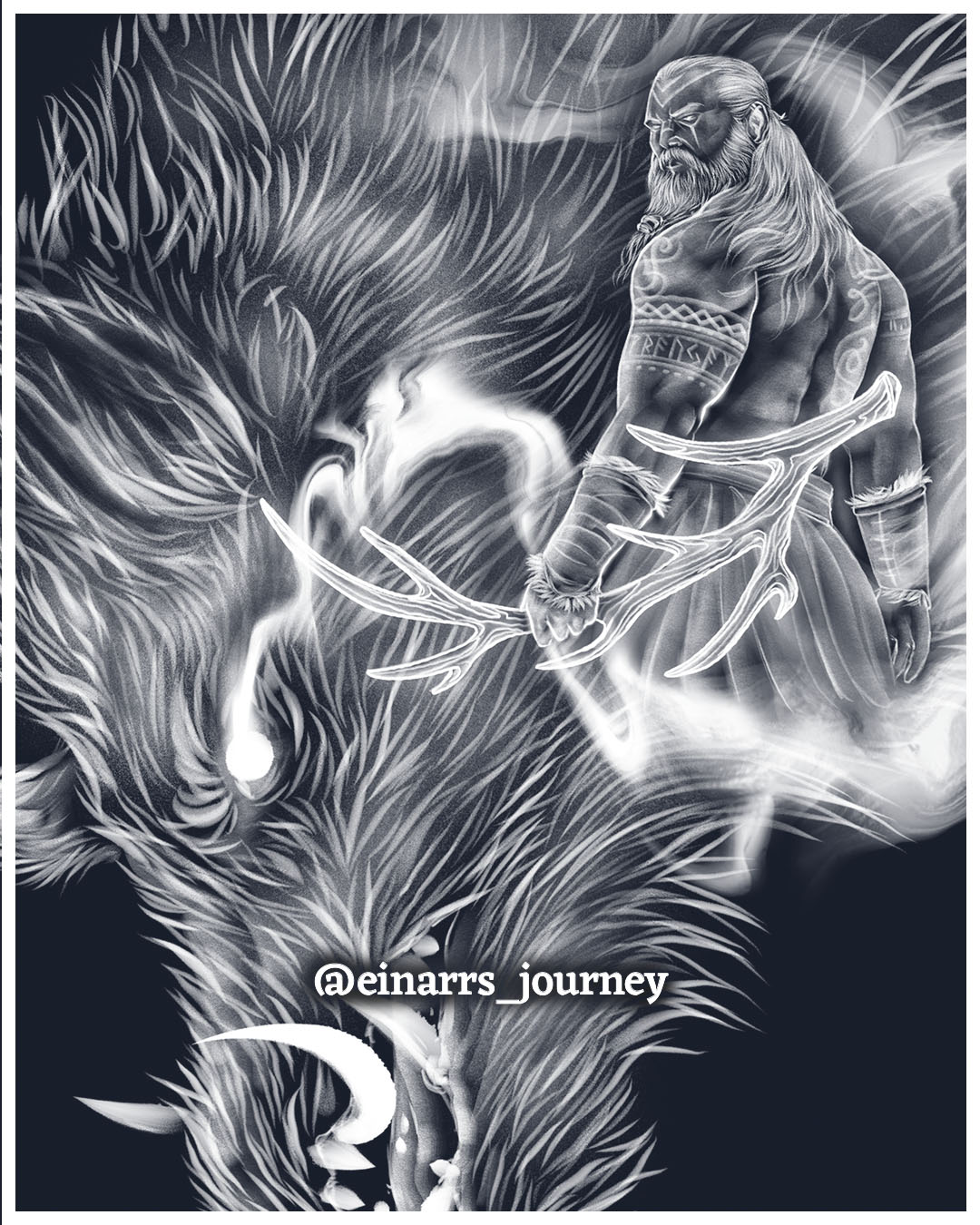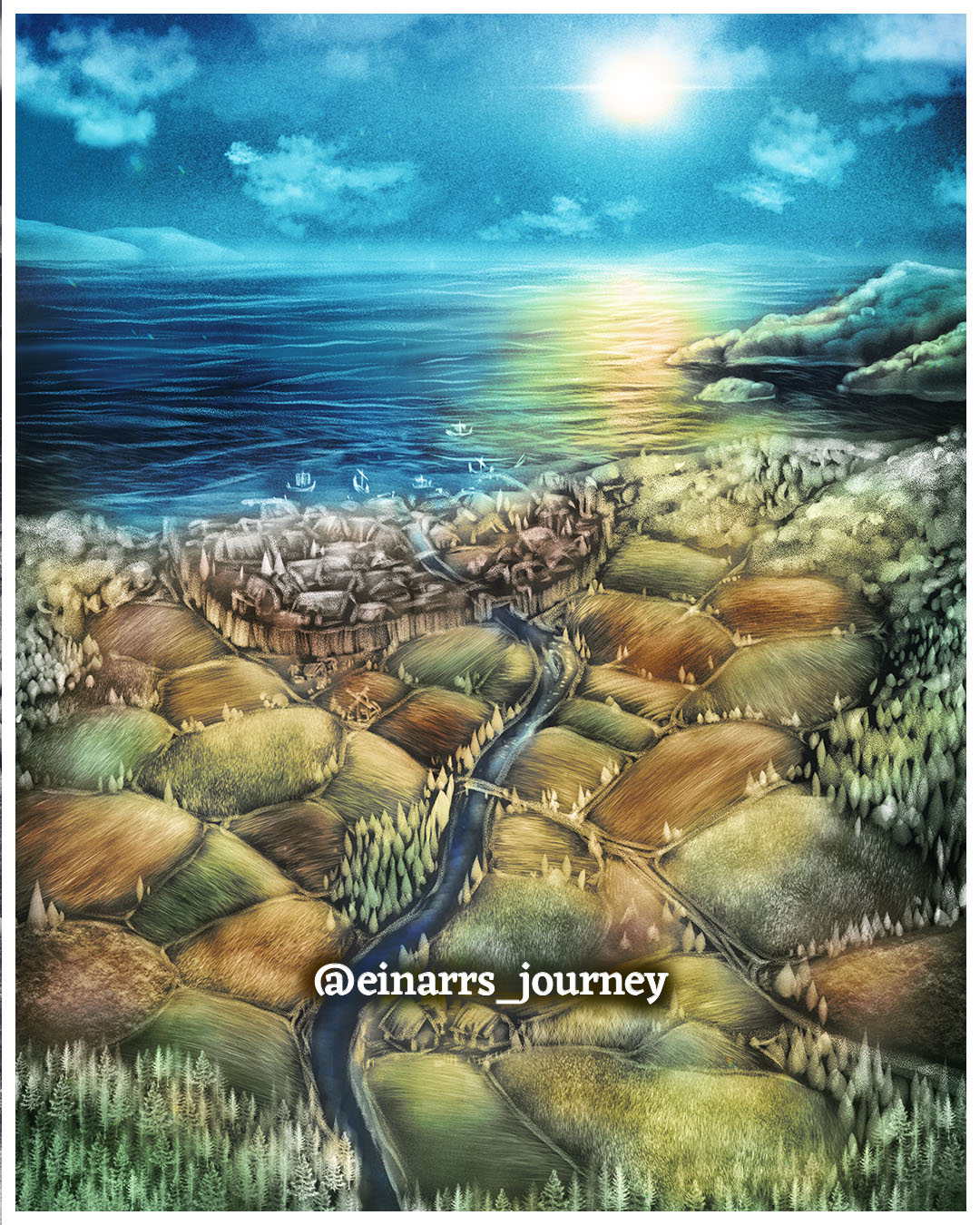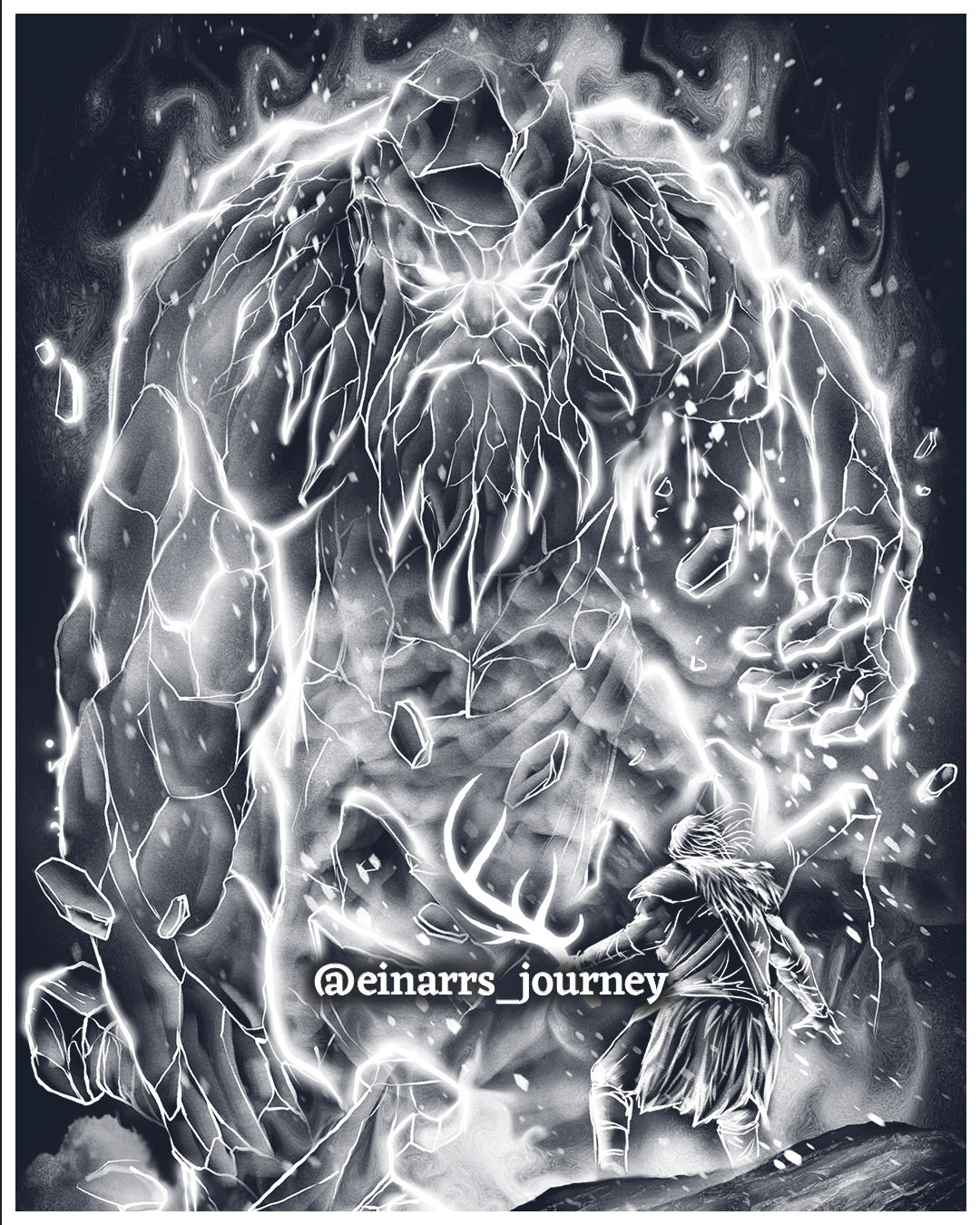
THE GODS OF NORSE MYTHOLOGY - FREYR
A Vanir god embodying the bountiful and nurturing forces of nature - A symbol of peace and abundance in Norse mythology.

Freyr, [ON. 'Lord'] The most powerful and important Fertility god of the Vanir tribe
Freyr, one of the principal deities in Norse mythology, is celebrated as the god of fertility, prosperity, and peace. As a member of the Vanir, a group of gods associated with nature and fertility, Freyr embodies the bountiful and life-sustaining forces of the natural world. He is often depicted as a handsome and radiant figure, holding in his hand the symbol of his power—a golden boar named Gullinbursti, renowned for its gleaming bristles. Freyr's benevolent influence extends over agriculture, ensuring fruitful harvests, and he is also considered a guardian of human well-being, offering his protection during times of peace. Yet, Freyr's most iconic attribute is his immense phallic symbol, an emblem of his role in ensuring fertility and the continuation of life.
Despite his harmonious disposition, Freyr's mythology contains moments of conflict and drama. Most notably, his love for the giantess Gerd led to a complex narrative where his servant, Skirnir, was sent on a perilous journey to win her heart. This story underlines Freyr's willingness to go to great lengths for love and the delicate balance between peace and strife in Norse mythology. Freyr's veneration as a god of abundance and his significance in the cyclical rhythms of the natural world make him a beloved and vital deity in the Norse pantheon.
SOME KEY THINGS TO KNOW ABOUT FREYR
The origin of his name[s]
Freyr: The name "Freyr" is the Old Norse form of the god's name. It is derived from the Old Norse word "freyr," which means "lord" or "ruler." In this context, "Freyr" is often interpreted as "Lord" or "Master," emphasizing his role as a deity associated with fertility, abundance, and prosperity. Freyr was considered a god of peace and prosperity, and his name reflects his status as a benevolent and powerful deity.
Fraujaz: The name "Fraujaz" is an older Germanic form of the god's name and is believed to be the Proto-Germanic precursor to "Freyr." The Proto-Germanic word "fraujaz" also means "lord" or "master," and it shares the same essential meaning as "Freyr." This name was used by the early Germanic peoples and eventually evolved into "Freyr" in Old Norse.
Yngvi: The name "Yngvi" is another Old Norse name for the god Freyr. It is connected to the Proto-Germanic name "Ingwaz," which is believed to have been a significant and ancient name associated with a divine or heroic figure. The exact nature of this figure and the deity it represented is a subject of debate among scholars, but "Ingwaz" or "Yngvi" is often associated with Freyr due to similarities in their attributes and functions. "Yngvi" suggests a divine or royal lineage, emphasising Freyr's role as a god of fertility and kingship. Ingwaz is, of course, also the name of one of the Elder Futhark runes - ᛜ.
Freyr's Treasures
Freyr owns three notable treasures. These are Skíðblaðnir, Gullinbursti and a sword that he gives to his servent Skírnir.
Skidbladnir: Skidbladnir is a remarkable ship made by the dwarves, renowned for its magical properties. It is said to be the best of all ships and is capable of folding up like a piece of cloth, making it easily transportable. Skidbladnir was a gift to Freyr from the sons of Ivaldi, skilled dwarf craftsmen, and it is said that the ship can always find favorable winds and reach its destination swiftly. This extraordinary ship is often seen as a symbol of Freyr's wealth and prosperity.
Gullinbursti: Gullinbursti, which means "Golden-Bristled" or "Golden Mane," is a boar created by the dwarves Brokkr and Sindri (also known as Eitri) as one of the treasures they made to compete against the trickster god Loki. This boar had bristles made of pure gold and possessed great speed and strength. Gullinbursti is one of Freyr's companions and is known for its ability to light up the night, symbolizing the warmth and fertility associated with Freyr.
Sword (unnamed): In the myth involving Freyr and his servant Skirnir, Freyr lends Skirnir his powerful sword to help him in his quest to win the hand of the giantess Gerd, whom Freyr has fallen in love with. This sword is not given a specific name in the surviving Norse texts, but it is described as a mighty weapon that can fight on its own. The sword is crucial to Skirnir's success in persuading Gerd to marry Freyr, as he uses it to threaten her into agreeing to the union.

Freyr's role as a fertility god
Freyr is a prominent Norse god associated with fertility, prosperity, and abundance. As the twin brother of Freyja, the goddess of love and fertility, Freyr's domain encompasses both the agricultural and natural aspects of fertility. He is often depicted with his symbol, the golden boar Gullinbursti, which is a testament to his role as a god of fertility.
Gullinbursti is no ordinary boar; its golden mane radiates with a celestial glow, representing the sun's life-giving and nurturing properties. This radiant boar symbolises the bountiful harvests and the rejuvenation of nature that Freyr brings to the world, making him an essential deity in the Norse pantheon for ensuring the prosperity of both land and people.
Freyr's association with fertility extends beyond agriculture, as he is also linked to human procreation and well-being. His gentle and benevolent nature, combined with his role as a protector of life and abundance, made him a beloved figure in Norse mythology. His golden boar and the sense of renewal it represents serve as a reminder of the cyclical nature of life, death, and rebirth, making Freyr a crucial deity for the ancient Norse in their pursuit of sustenance and prosperity.

The death of Freyr at the hands of Surtr
Freyr's demise at the hands of Surtr is a pivotal event in Norse mythology, foretold in the prophetic poem "Vǫluspá" as a grim prelude to Ragnarök, the apocalyptic end of the world. During this catastrophic event, Freyr, the god of fertility and prosperity, is fated to confront the mighty fire giant Surtr, who wields a colossal flaming sword. This epic showdown symbolizes the elemental forces of fire overcoming the god of abundance, marking the end of an era and the onset of chaos.
As Freyr faces Surtr on the battlefield of Ragnarök, he is armed only with an antler, as he had previously exchanged his legendary sword to Skirnir for the love of the giantess Gerðr.
Freyr's bravery and nobility ultimately prove insufficient against Surtr's overwhelming might. Surtr's fiery sword strikes Freyr down, bringing about his tragic demise.
This event underscores the overarching theme of Ragnarök, where the old gods and the natural order give way to chaos and destruction, signifying the cyclical nature of Norse cosmology. Freyr's sacrifice, along with the fate of other deities, serves as a powerful reflection of the Norse belief in the inevitability of change and renewal, even amidst the cataclysmic end of their world.
